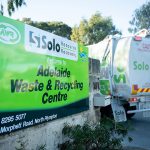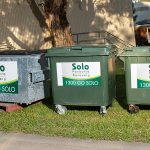Don’t Dump It! Why E-Waste Recycling is a Must for Every Australian Home
In today’s digital age, technological advancements are constantly pushing the boundaries of innovation. From smartphones and laptops to gaming consoles and smart home devices, these electronic items have become an integral part of our daily lives. However, the rapid disposal of these devices poses a significant environmental concern known as e-waste.
The issue of recycling of e-waste has become increasingly important. As technology continues to evolve and consumers upgrade their devices, the amount of e-waste generated in Australia is increasing. This surge in e-waste presents a serious threat to the environment, as these electronic devices contain hazardous materials that can contaminate the soil, water, and air if not disposed of properly.
To address this issue, the Australian Government has implemented initiatives to promote e-waste recycling. This article looks at the importance of recycling e-waste, the environmental impact of improper disposal, government initiatives, and how individuals can contribute to a sustainable future.
The Growing Problem of Electronic Waste in Australia
Australia, like many other developed nations, faces a challenge in managing e-waste. With rising living standards and disposable incomes, the demand for electronic devices has surged. Consequently, the volume of e-waste generated in Australia has reached significant proportions.
The improper disposal of e-waste has severe environmental consequences. These devices contain materials such as metals, plastics, and hazardous chemicals, and when dumped in landfills, these materials can leach into the soil and groundwater, contaminating ecosystems and harming human health. Furthermore, burning e-waste emits toxic fumes, exacerbating air pollution and climate change.
The Importance of Recycling of Electronic Waste
E-waste recycling is important to mitigate the environmental impact of electronic waste. By recycling e-waste, we can achieve the following:
- Resource Recovery: Valuable materials like precious metals, plastics, and glass can be recovered and reused in the manufacturing of new products. This helps conserve natural resources and reduce the need for mining and extraction.
- Reduced Environmental Impact: Recycling e-waste prevents hazardous materials from entering the environment, protecting ecosystems and human health. It also minimises the amount of waste sent to landfills, reducing landfill capacity and emissions.
- Energy Conservation: The manufacturing of new electronic devices requires energy consumption. By recycling old devices, we can reduce the demand for energy and contribute to lower greenhouse gas emissions.
Government Initiatives to Promote Recycling of E-waste
The Australian Government has taken several steps to encourage recycling of electronic waste and reduce its environmental impact. One of the key initiatives is the National Television and Computer Recycling Scheme (NTCRS). This scheme provides a free and convenient way for consumers to recycle their old televisions and computers, and the Adelaide Waste and Recycling Centre is a supporter of this initiative.
The NTCRS is funded by a levy on the sale of new televisions, computers, and the like. This levy ensures that the cost of recycling is covered, making it financially viable for recycling companies to collect and process e-waste. The scheme has been instrumental in diverting millions of tonnes of electronic waste from landfills and recycling it responsibly.
In addition to the NTCRS, the Australian Government has also introduced other regulations and guidelines to promote recycling of e-waste. These include:
- Product Stewardship Regulations: These regulations require manufacturers and importers of electronic products to take responsibility for the end-of-life management of their products.
- E-Waste Bans: Bans have been imposed on the export of certain types of e-waste to developing countries, ensuring that these hazardous materials are recycled responsibly within Australia.
The Future Outlook for Recycling of Electronic waste in Australia
The future of electronic waste recycling in Australia is promising, with several technological advancements and policy developments on the horizon.
Technological Advancements
- Advanced Sorting Technologies: The development of sophisticated sorting technologies, such as artificial intelligence and machine learning, will enable more efficient and accurate separation of valuable materials from e-waste. This will improve recycling rates and reduce contamination.
- Innovative Recycling Processes: New recycling processes, such as hydrometallurgy and pyrometallurgy, can recover valuable metals like gold, silver, and copper from e-waste more effectively. These processes can also reduce the environmental impact of traditional recycling methods.
- Data Recovery and Security: As e-waste contains sensitive personal data, advancements in data recovery and security technologies will be important to ensure that data is securely erased or recovered for reuse.
Policy Developments
- Extended Producer Responsibility (EPR) Schemes: The Australian government may consider implementing stricter EPR schemes, which would hold manufacturers responsible for the entire lifecycle of their products, including recycling. This could incentivise manufacturers to design more sustainable products and reduce e-waste generation.
- Investment in Research and Development: Increased government funding for research and development in e-waste recycling technologies can accelerate innovation and drive the development of new solutions.
- International Cooperation: Australia can collaborate with other countries to share best practices and technologies, and work towards international agreements on e-waste management.
Challenges and Opportunities
While the future of e-waste recycling in Australia is bright, several challenges remain:
- Complex Composition of E-Waste: The increasing complexity of electronic devices makes recycling more challenging.
- Cost-Effective Recycling Technologies: Developing cost-effective and environmentally friendly recycling technologies is essential to make recycling economically viable.
- Consumer Awareness and Behaviour: Educating consumers about the importance of e-waste recycling and encouraging them to recycle responsibly is important.
Despite these challenges, Australia has the potential to become a global leader in e-waste recycling. By embracing technological innovation, implementing effective policies, and fostering public awareness, we can create a sustainable future for our electronic waste.
How You Can Contribute to E-Waste Recycling
As individuals, we can play a significant role in reducing e-waste and promoting sustainable practices. Here are some tips on how you can contribute to e-waste recycling:
- Recycle Responsibly: Use the NTCRS or other authorised recycling programs to dispose of your old televisions, computers, and other electronic devices. The Adelaide Waste and Recycling Centre is well positioned to assist South Australian residents with this task.
- Extend Product Lifespan: Proper care and maintenance can extend the lifespan of your electronic devices. Avoid unnecessary upgrades and repairs to reduce the frequency of device replacement.
- Choose Sustainable Brands: Consider purchasing electronic products from brands committed to environmental sustainability and responsible recycling practices.
- Spread Awareness: Educate your friends, family, and community about the importance of e-waste recycling. Encourage them to adopt sustainable habits and dispose of their electronic waste responsibly.
In Conclusion
E-waste recycling is an important step towards building a sustainable future. By understanding the environmental impact of improper disposal and taking action to recycle responsibly, we can minimise the negative consequences of electronic waste. The Australian Government’s initiatives, along with individual efforts, are important in addressing this issue. Let us all contribute to a cleaner and greener planet by embracing e-waste recycling and making sustainable choices.
Don’t let your old tech harm the planet. The Adelaide Waste and Recycling Centre makes it easy to dispose of e-waste responsibly. Recycle your electronics today and help protect our environment. Call our centre on +61 8 8295 5077 or send us a message online, and let’s build a sustainable future together.
Adelaide Waste and Recycling Centre
Our friendly operators are available at the AWRC if you need to clarify any further information.


